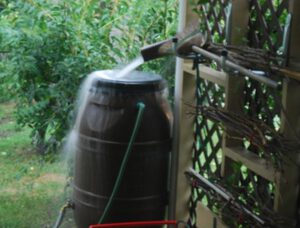As a pastor, I get to hear a lot of stories. My least favorite stories are told about persons not in the room and involve something this person did or didn’t do that created anxiety in the storyteller. These stories are particularly annoying when I’m the one telling the story.
The pandemic has thrown gasoline on smothering ambers. These ambers represent the tension between persons and between persons and their relationship with God. These outbreaks are exacerbated by the battles going on between our ears. We all have inner voices, and sometimes these voices compete with each other for attention. Worse, there is, more often than not, disagreement between them.
The Chicago School of Professional Psychology website warns that COVID-19 and the unprecedented lockdowns that followed have had a massive impact on relationships and family life. And the need for family psychologist rose dramatically as a result. 2
Isolation and fear of catching the virus or transmitting the virus made getting along an art form. And most of us were not prepared to deal with such dramatic change. Relationships suffered, and we all suffer as a result.
The Bible is chocked full of relationship stories. From drama to humor and from love to war, the biblical narrative weaves a storyline of persistent and unwavering love despite the ups and downs of life with one another sharing the same planet. There is one thing about this endless love that is consistent. Love is more than a feeling of affection — love is a verb that acts in ways where love is manifested in visible, tangible ways.
The relationship between God and people is often strained in stories from the Bible. During the time of the Prophet Isaiah, the neighborhoods and farms were tangible signs of people suffering. The land was overgrown, and buildings were deserted and in ruins.
At last the Spirit is poured out on us from heaven. Then the wilderness will become a fertile field, and the fertile field will yield bountiful crops.
Isaiah 32:14-15
God promised through the Prophet Isaiah that this wouldn’t always be the case. There would come a time, Isaiah told the people, when God’s Spirit would fall upon the people, and their community would return to prosperity. God’s love would be felt and seen in tangible ways.
Jesus referred to this tangible presence of love as fruit. Just as plants produce fruit that makes the continuation of life possible, love also produces fruit. This is because love makes the continuation of life both possible and often pleasurable.
God created relationships as the foundation for all of creation. From the atomic level, where particles invisible to the naked eye bear fruit through a relationship with each other, to the cooperation between internal organs — each life is a symphony of relationships. This complexity of relationships within us is best recognized thanks to the human mind that conducts the symphony.
The greatest mystery of all, however, is the invisible interaction we call spirit. A force that binds us together, eliminating the possibility that anyone can exist without impacting the rest of us. Spirit ties each of us together into a more excellent score and connects us to something much grander than we can imagine.
We often talk about feeling God’s presence in places where it seems like the separation between God and us is extraordinarily thin. God’s presence lifts our spirits giving us a spiritual high. But spirit isn’t just about “mountain top” experiences.
Joel Salatin writes in The Marvelous Pigness of Pigs, “We can’t live a spiritually vibrant life from a onetime mountaintop experience. I don’t care how wonderfully touched and moved by the Spirit I may have been at a certain service or in a certain place. It won’t sustain me over the long haul.”
Fortunately, God’s Spirit is persistently present. Creation began with the Spirit of God and continued as plants, creatures, and eventually, humankind emerged out of the carbon from which life begins and ends. And this Spirit interacts with our own, claiming us as God’s own. Relationships are born of Spirit, which manifests itself as love.
Joel Salatin writes about his farm as a place of relationships. A handful of soil contains as many microscopic creatures as there are people on the planet. His family’s farm needs people to do the chores that result in a bountiful harvest. Tools and machinery are used to help humans carry out the work expected by God rather than take the place of people.
 Contrast this approach to large, industrial farms relying on massive equipment and thousands of gallons of herbicides, pesticides, insecticides, and antibiotics to produce a harvest. The only love found in abusing the land and animals is love for money. This idol replaces and negates relationships with God.
Contrast this approach to large, industrial farms relying on massive equipment and thousands of gallons of herbicides, pesticides, insecticides, and antibiotics to produce a harvest. The only love found in abusing the land and animals is love for money. This idol replaces and negates relationships with God.
This week we celebrate the beginning of the church as we know it. The church emerged out of Synagogues and altars and any place where humanity’s spirit intersected with God’s Spirit. The church is nothing more than a group of people and nothing less. Spirits coming together in a relationship based on returning the love offered freely by God and expressing love to each other.
But once the Spirit of God stirs our souls, we discover that there is too much love to contain. We are like rain barrels overflowing during a storm, unable to hold all of the love flowing out of the Spirit’s presence. We take this overflow to the city streets, country roads, our nation’s trails, and the world. And we never run empty as long as we allow the Spirit access to our true selves.
We began our series, Living water, two weeks ago. If you missed our earlier episodes, you can find the articles under the Worship tab of our website — Messages and Audio Teachings. Our primary subject matter is food. How we grow it, where we get our food, and how we treat creation in the process.
In this series we explore God’s abundance and our role in its equitable use and distribution. Be sure to request your copy of Joel Salatin’s book. And join us each Wednesday at Noon for Book Club and each Sunday at 10:30 am for New Beginnings.
On June 6 we begin a new series titled Coming out. You can find more information elsewhere in the Circuit Rider under the heading Coming up in worship.
We have a new button on the homepage of our website – Click here to watch. This button takes you to a viewer to allow you to join live or watch later in the week. We’re also live on Facebook and our newly launched YouTube channel. You can find these links along with more information about us on our website at FlintAsbury.org.
A reminder that we publish this newsletter that we call the Circuit Rider each week. You can request this publication by email. Send a request to info@FlintAsbury.org or let us know when you send a message through our website. We post an archive of past editions on our website under the tab, Connect – choose Newsletters.
Pastor Tommy
1 Most of the content for our series comes from: Joel Salatin. The Marvelous Pigness of Pigs: Respecting and Caring for All God’s Creation. New York: FaithWords, a Division of Hachette Book Group, 2016..
2 “The psychology of family dynamics amid the COVID-19 pandemic,” {Insight}. © The Chicago School of Professional Psychology, December 2, 2020.

